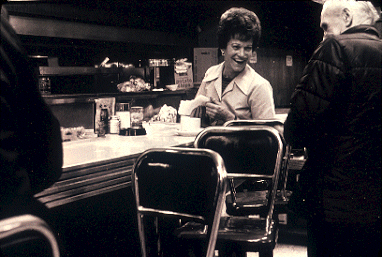Have you ever said “you’re welcome” to someone who has thanked you? Hopefully, all of us have. But apparently, the phrase carries with it a negative connotation.
New Hampshire teacher Murray McClellan had a conversation with his family this week in regards to saying “you’re welcome,” he wrote in The Boston Globe. McClellan’s son and his girlfriend, Jenna, agreed that saying “you’re welcome” is a rude recognition of some sort of power distance between the person saying “thank you” and the person saying “you’re welcome.” According to McClellan’s son, saying “you’re welcome” implies that you are better than the person who is thanking you. That saying “you’re welcome” is the same as saying “you owe me one.”
McClellan, however, believes that saying “you’re welcome” is the same as saying “my pleasure, or “don’t mention it.” He says “you’re welcome” should be taught, just as “please” and “thank you” are, attributing the lack of understanding of the phrase to generational differences.
Now, even psychologists are speaking out against the phrase. According to McClellan, motivational psychologist Robert Cialdini recommends we say “I know you’d do the same for me” in response to being thanked.
It is true — “you’re welcome” sounds pretty awkward sometimes. But the phrase has been almost ingrained in our minds — some of us say “god bless you” when someone sneezes, even if we aren’t a religious person who truly means for that person to be blessed. The same goes for “you’re welcome.” Have you ever almost instinctively said “you’re welcome,” even when you haven’t been thanked for anything? Just as McClellan suggests, saying “you’re welcome” is just as commonplace as saying “please” and “thank you.”
Perhaps we believe that “you’re welcome” is more of a formal phrase. Plenty of us say “of course” or “my pleasure” when we mean to say “you’re welcome” in response to a “thank you.” But sometimes saying “my pleasure” is more derogatory than saying “you’re welcome.” At Chick-fil-A, servers are required to use “my pleasure” in response to customers’ thanks. In all honesty, we know that it isn’t actually your “pleasure” to serve us chicken on a bun. We know that the average retail worker’s “pleasure” isn’t to bring us that pair of shoes in our unpopular size from the back room. Here, the power distance almost makes a switch. The subservient person is now not the one who says thank you, but the opposite.
That being said, the use of the phrase is always situational. The fact is, any form of “you’re welcome” can have a negative connotation — it’s all about tone of voice. We all make sarcastic comments once in a while. We’ve all said “no problem” when someone has asked us for help reaching an itch on their back when really we would rather walk in the opposite direction. We’ve all smiled through out teeth and said “my pleasure” to a customer when we really want to “accidentally” spill their soup on their laps. Don’t we?
Cialdini’s suggestion that we respond to “thank you” with “I know you’d do the same for me” seems preposterous in its own right. In a world full of favors, the worst type of person is one who says, “you owe me one” in response to something they’ve done for you, just as Jenna explains. But “I know you’d do the same for me” seems to actually imply just that, and isn’t this sort of back and forth of favors the type of thing we are trying to avoid with these new ways of saying “you’re welcome?” Now, because you would apparently “do the same” for your friend, you owe him. You’re indebted to him.
Let’s take this to a different level. The same type of negative connotation comes along with situations in which one person compliments a friend’s sweater, and the friend says, “Oh, I like yours, too!” The automatic response proves that the friend wasn’t really interested in that mousy brown sweater you’ve worn for the second day in a row. But what’s worse is when we respond to a compliment with, “Oh, no, don’t say that.” Our fake modesty not only implies that we aren’t confident in ourselves, but also that we don’t value our friend’s opinion of us.
Of course, this isn’t to say that we should all be overly complimentary to each other, either. Let’s say what we mean to say when we actually mean to say it. In September, we wrote an editorial about the idea that this country is becoming too politically correct. And it would seem that this argument over whether or not saying “you’re welcome” implies a power trip is taking things a bit too far.
All of this is to say that no matter the situation, we all need to remain authentic with each other. We can determine which phrases are the most appropriate based upon the situation, and as long as we are truthful, no one should be offended. At least not people who appreciate the truth, that is.























































































































Eily VanderMeer • Oct 27, 2015 at 2:10 pm
Dr. Cialdini has issue more with the phrase “no problem” in response to “Thank you”. Saying “no problem” devalues what you have done for the person. He is fine with “you’re welcome”, but in the confines of a business relationship, it is better to say “I know you’d do the same for me” to initiate the principle of reciprocity.